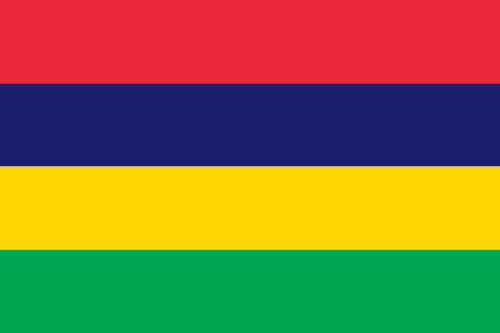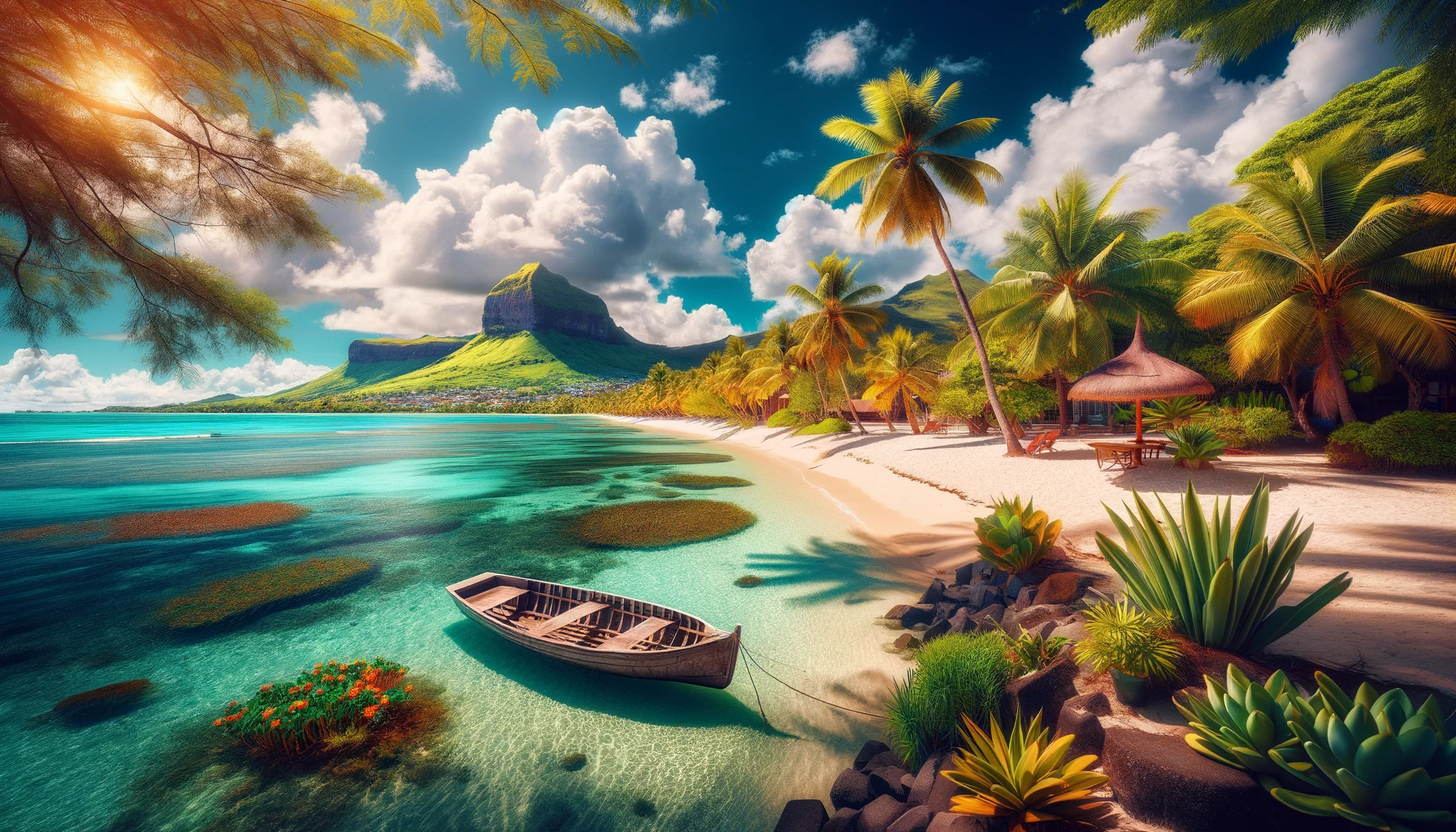Mauritius, an island nation in the Indian Ocean, is celebrated for its stunning beaches, lagoons, and reefs. Its rich history is a blend of diverse cultures, evident in its cuisine and traditions. With the lush Black River Gorges National Park, vibrant Port Louis, and unique wildlife, Mauritius offers a serene yet vibrant getaway.
List of Public and National Holidays in Mauritius for the year 2025
- New Year’s Day is on Wednesday, 1st January 2025.
- New Year Holiday is on Thursday, 2nd January 2025.
- Chinese New Year is on Wednesday, 29th January 2025.
- Abolition of Slavery is on Saturday, 1st February 2025.
- Thaipoosam Cavadee is on Tuesday, 11th February 2025.
- Maha Shivaratree is on Wednesday, 26th February 2025.
- National Day is on Wednesday, 12th March 2025.
- Ugadi is on Sunday, 30th March 2025.
- Eid al-Fitr is on Monday, 31st March 2025.
- Labour Day is on Thursday, 1st May 2025.
- Ganesh Chaturthi is on Thursday, 28th August 2025.
- Divali is on Monday, 20th October 2025.
- All Saints’ Day is on Saturday, 1st November 2025.
- Arrival of Indentured Labourers is on Sunday, 2nd November 2025.
- Christmas Day is on Thursday, 25th December 2025.
List of Public and National Holidays in Mauritius for the year 2024
- New Year: Monday, 01 January 2024
- New Year Holiday: Tuesday, 02 January 2024
- Thaipoosam Cavadee: Thursday, 25 January 2024
- Abolition of Slavery: Thursday, 01 February 2024
- Chinese Spring Festival: Saturday, 10 February 2024
- Maha Shivaratree: Friday, 08 March 2024
- Independence and Republic Day: Tuesday, 12 March 2024
- Ugaadi: Tuesday, 09 April 2024
- Eid-ul-Fitr**: Wednesday, 10 April 2024
- Labour Day: Wednesday, 01 May 2024
- Assumption of the Blessed Virgin Mary: Thursday, 15 August 2024
- Ganesh Chaturthi: Sunday, 08 September 2024
- Divali 2024: Thursday, 31 October 2024
- Arrival of Indentured Labourers: Saturday, 02 November 2024
- Christmas: Wednesday, 25 December 2024
**Note: Eid-ul-Fitr dates may vary based on the lunar calendar.
Video on Mauritious
History
- Early Inhabitants: Initially uninhabited, Mauritius was first discovered by the Arabs in the 10th century, followed by the Portuguese in the 16th century. However, neither settled permanently.
- Dutch Colony: The island was first colonized by the Dutch in 1598, who named it after Prince Maurice van Nassau but abandoned it due to harsh weather and environmental challenges.
- French and British Rule: The French took control in 1715, renaming it Île de France and developing the island’s economy based on sugar plantations. The British then seized it in 1810, restoring the name Mauritius and abolishing slavery in 1835.
- Independence: Mauritius achieved independence from British rule in 1968 and became a republic within the Commonwealth in 1992.
Geography
- Location: Located in the Indian Ocean, east of Madagascar, Mauritius is part of the Mascarene Islands, which also include Réunion and Rodrigues.
- Topography: The island is volcanic in origin, featuring mountains, plateaus, and a coastal plain. Its coral reefs are among the world’s most beautiful.
- Climate: Tropical climate with two seasons – a warm, humid summer and a mild, dry winter. The island is prone to cyclones.
Culture
- Ethnic Diversity: A melting pot of ethnicities including Indian, African, Chinese, and European descendants. This diversity is reflected in its culture, language, and religious practices.
- Languages: English is the official language, though French and Creole are widely spoken.
- Religions: Religious freedom with Hinduism, Christianity, Islam, and Buddhism being the major religions.
- Festivals and Cuisine: Celebrates various cultural festivals like Diwali, Christmas, and Chinese New Year. The cuisine is a blend of Creole, Chinese, European, and Indian influences, known for its seafood and spicy dishes.
Economy
- Agriculture: Historically reliant on sugar cane farming, which remains a significant sector.
- Diversification: Since independence, has successfully diversified into textiles, tourism, and financial services.
- Tourism: A major economic driver, the island is famed for its luxury resorts, beaches, and diverse flora and fauna.
- Financial Sector: Known for being a stable and competitive offshore financial center.

Politics
- Government: A parliamentary republic with a president as head of state and a prime minister as head of government. Its political system is based on the British parliamentary system.
- Legal System: A hybrid system influenced by French civil law and British common law.
- Stability and Governance: Known for its stable democracy and good governance, Mauritius often ranks high in Africa for democracy and economic freedom.
Society
- Population: A small but diverse population, with a high degree of cultural and religious harmony.
- Healthcare and Education: Boasts a high standard of free public healthcare and education, with a high literacy rate and life expectancy.
- Social Issues: Despite progress, faces challenges like income inequality, environmental sustainability, and adapting its economy to global changes.
Science and Technology
- Research and Innovation: Increasing investment in research, particularly in marine sciences, renewable energy, and biotechnology.
- Technology Adoption: Rapid adoption of digital technologies, with a growing focus on developing a knowledge-based economy.
Arts and Literature
- Literary Scene: A developing literary scene with authors often exploring themes of cultural identity, history, and diversity.
- Visual and Performing Arts: A vibrant arts scene, reflecting its multicultural heritage, with traditional music, dance, and crafts being an integral part of Mauritian culture.
Sports
- Popular Sports: Includes football, horse racing (a national passion), and water sports such as surfing and diving.
- International Representation: Athletes represent Mauritius in various sports, including athletics, badminton, and boxing, at international events like the Olympics and the Commonwealth Games.
International Relations
- Foreign Policy: Active in international affairs, particularly within the African Union and the Commonwealth. Advocates for small island developing states and environmental issues.
- Regional Cooperation: Engages in regional cooperation in the Indian Ocean region, focusing on trade, security, and environmental protection.
Challenges and Prospects
- Economic Growth: Strives to maintain economic growth while diversifying its economy further, especially in fields like technology and green energy.
- Environmental Sustainability: Faces challenges related to climate change, conservation of its unique ecosystems, and sustainable tourism.
- Social Development: Continues to work on improving social equality, healthcare, and education to maintain its high living standards.

